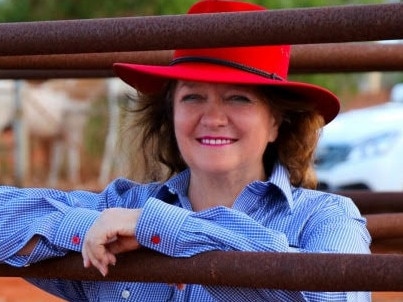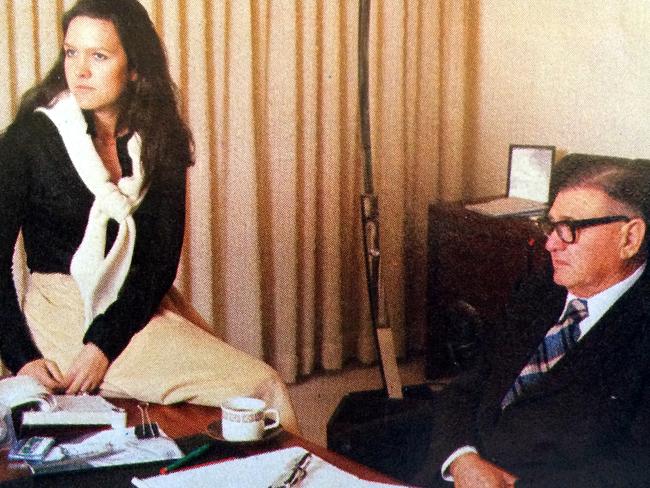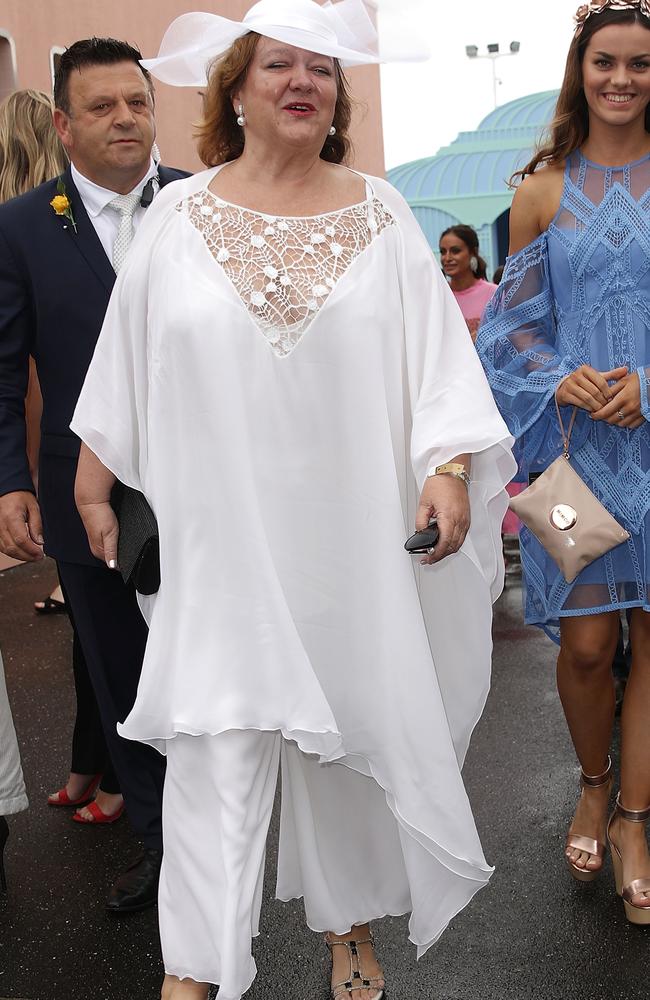Gina Rinehart: ‘Women need to work harder and for longer’
Australia’s richest person has some advice for women wanting to reach the top of their careers - work harder. In fact, Gina Rinehart believes women should be working through their lunch breaks and even while on holidays. DO YOU AGREE?
WOMAN need to work harder for longer and take fewer breaks if they want to reach the top of the corporate ladder, according to Gina Rinehart, the nation’s richest person.
The mining magnate, who inherited her business from her father Lang Hancock, said: “When I’m asked to give advice, I say to women, if you want to go further up the ladder, what you should be doing is working through lunches, working later, be willing to work later. Willing to, even on holidays or public holidays, be available.
“Because what you should be wanting is that you’ve achieved that position yourself — you are worthy of that position.
“I don’t think quotas can do that. It’s got to always be, if a woman wants an executive position, they should put in that extra, put in more than their colleagues.”

MORE FROM STELLAR MAGAZINE
ELSA PATAKY ON THE POWER OF WOMEN OVER MEN
BEN LUCAS: ‘I JUST HAD TOO MANY CONCUSSIONS’.
It is not advice she gives others without heeding it herself, and as executive chairman of Hancock Prospecting, she describes herself as “never not working”.
As she speaks from a wooden-decked vintage boat following the Australian women’s rowing team down the Thames in England, her iPad never strays far from her hand.
However, Mrs Rinehart’s comments come as a recent report from the Workplace Gender Equality Agency showed women are far less likely to have executive positions or, if they do have them, are not paid equally to their male counterparts regardless of how hard they work.
The WGEA five-year snapshot found the number of Australian female CEOs is still at 17.1 per cent, the percentage of females on boards is 28.1 per cent and the number of female chairs is 13.7 per cent.

Female executives can expect to earn on average around $235,000 in total salary and male executives more than $309,000 — an average pay gap of 24 per cent despite working the same hours.
According to 2016 census data, women work an average of 30 hours per week compared to 39 hours recorded by men.
Women also comprise 47 per cent of the total workforce, but many are working on a part-time basis.
The Workplace Gender Equality Agency estimates that nearly 70 per cent of working women are in part-time roles, compared with 37 per cent who work full-time.
However, these figures are skewed because many females are mothers returning to the work force.

While mining remains the highest-paying industry for men and women, it has descended three places from 11th to 14th on both base and total salary measures in terms of gender pay equality.
Mrs Rinehart’s other primary industry of agriculture is the second worst industry for gender pay disparity, with a 21.6 per cent pay gap.
Men still dominate full-time employment, making up close to two-thirds of all full-time employees. This gender difference in full-time employees is linked to a number of factors. Most significantly, the different roles men and women play when it comes to work and family.
There is “a lack of gender balance on boards and at the CEO level”, the Gender Equality Insights 2018 WEGA report says, adding: “Gender segregation remains deeply entrenched across Australian industries.
“The gender pay gap typically increases with occupational hierarchy. Higher status occupations in management will often be accompanied by a wider gender pay gap.
“Men are also over-represented in full-time management positions, particularly top-tier managers in the Executive suite.”


